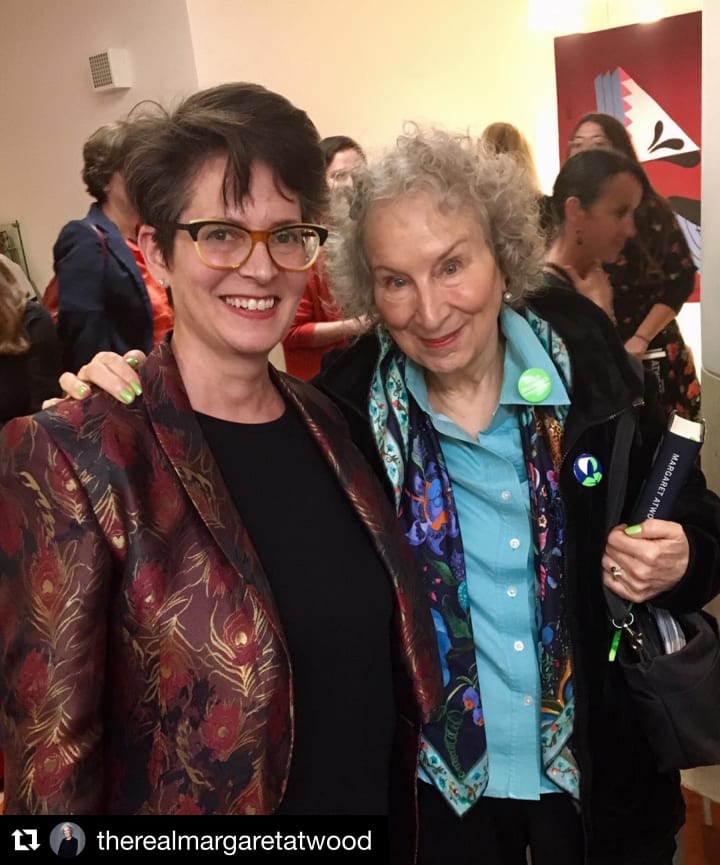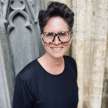Down about Warren? Think of Mantel and Atwood, and cheer
Yes, Elizabeth Warren's dropped out of the race. But the biggest stars of literature these days are women — older women! — and that gives me hope.

A person could become pretty despondent about – well, about nearly everything, these days. But let’s focus on one thing: Elizabeth Warren dropping out of the Democratic primaries, leaving Joe Biden and Bernie Sanders as the clear front-runners in the presidential race to come. Make no mistake, she was the one responsible for pushing Mike Bloomberg out of the race: at the primary debate in Las Vegas last month, she called him out as a “billionaire who calls women fat broads and horse-faced lesbians”. He withered beneath her intelligence and ruthlessness, and that was the end of that.
And yet it seems we are still not ready for a woman to take the title of Commander-in-Chief. I’m a US voter who has long lived in England; I fear I thought her run was doomed when, the day before Super Tuesday, I heard a British journalist describe her a “schoolmarmish” on the BBC’s flagship radio news.
Once again, it seems, we have to say it. How tiresome, right? Men are forthright; women are bossy. Men speak their minds; women are shrill. If women are really lucky, they might get described as “feisty”, a word I loathe. Funny how men are never, ever, feisty.
Ageism, too, plays a part. Men are distinguished. Women are old. Or at least that’s what much of the culture urges us to think. Not so long ago I interviewed an Oscar-nominated Hollywood actor, a real star and a brilliant talent, who was looking ahead anxiously to the big birthday around the corner. “What happens when I hit 40?” she asked. “You hear about this cliff that women are pushed off — some of them manage to find a side road off the cliff, but it’s nerve-wracking,” she said.
Perhaps that’s changing in Hollywood; perhaps not. But there is, I feel, more than a glimmer of hope to be found in the world of literature. In the last six months two books have completely dominated the English-language publishing world: in the autumn of last year came Margaret Atwood’s The Testaments, her hugely-anticipated follow-up to The Handmaid’s Tale, and just this month Dame Hilary Mantel has finally published the long-awaited third volume in her Tudor trilogy. The Mirror and the Light brings her epic re-imagining of the life of Thomas Cromwell, Henry VIII’s canny minister, to a triumphant — and tragic — close.
I’ve been lucky enough to be involved in both publications, and to know both of these remarkable authors. At the global launch of The Testaments last September, I sat with Atwood on a stage at the British Library in front of 145 journalists from 14 countries and chaired the discussion which Atwood handled with her characteristic ferocious energy and dry aplomb. The Handmaid’s Tale, first published in 1985, imagines a dystopia in which, thanks to declining fertility rates, the few women still able to have children in the country now known as “Gilead” — once the United States — are forced to bear those children for high-ranking men.
Always a highly-regarded novel and a staple of classrooms, the book’s fame was ratcheted up thanks to Bruce Miller’s atmospheric – and hugely successful – television adaptation of The Handmaid’s Tale. But politics played a role, too: the first season launched in the spring of 2017, right at the beginning of the Trump presidency, and suddenly there were ordinary women dressing up at Handmaids to protest increasing assaults on women’s rights.
At the launch of The Testaments — which takes Gilead into the future and reveals the secret of its fall — those journalists from every corner of the globe hung on Atwood’s every word. The author herself, who has always said she puts nothing in her “speculative fiction” that hasn’t actually happened somewhere in the world, was wry when asked about her prescience. The new book, she said, “enters into a conversation that’s already taking place, because The Handmaid’s Tale has been a meme in these kinds of conversations for years. It was in the 2008 election, it was in the 2012 election, and it certainly was in the 2016 election. But for a society that claims to value individual freedom, I would say to them, evidently you don’t think this individual freedom extends to women.” Amen to that. (And you can read my full interview with Margaret Atwood here, at the New Statesman.)

A couple of months after the launch of The Testaments, Atwood celebrated her 80th birthday; her energy, enthusiasm and overall vim puts those decades younger than she is to shame. And so we come too to Hilary Mantel, who is now approaching 70 – and is unquestionably the biggest star in the British Literary firmament. She is the only living author whose portrait hangs in the British Library; when The Mirror and the Light was published at the beginning of March, the image of its cover was projected onto the Tower of London, where Cromwell was imprisoned before his execution in 1540. And just as Margaret Atwood signed copies of her book at a midnight launch held at Waterstones bookshop in London’s Piccadilly, so did Hilary Mantel, though it’s worth remarking that advance orders for the third volume of Mantel’s trilogy surpassed even those for The Testaments. James Daunt, CEO of Waterstones, called the release of The Mirror and the Light “the most significant publishing event of my 30-year bookselling career”.
Let’s lay aside, for a moment, that both of these novels are remarkable in themselves. Along with Bernardine Evaristo’s Girl, Woman, Other, The Testaments was one of the two winners of last year’s Booker Prize – yes, normally the prize only has one winner, but that’s another story. (And let's have a shout-out for the fantastic Evaristo -- check her out here.) As for Mantel, both Wolf Hall and Bring Up the Bodies, the first two volumes in the trilogy, won the Booker Prize, an unprecedented achievement. Will The Mirror and the Light win her a third? We shall have to wait and see.
The point I’m making is: this is rock star stuff, and the literary agenda is being set by women – and older women, at that. These are writers at the top of their game, proving what years of experience have taught them, proving what they can achieve – and proving how readers respond with passion. Both Mantel and Atwood are aware, too, that there are benefits to having the experience to deal with success later in life. Make no mistake, both writers have been successful and beloved for decades, but what’s happening now is off the scale. When I asked Hilary Mantel whether she was oppressed by the weight of expectation surrounding The Mirror and the Light, she was sanguine. “I’m keeping my eye on the content of the book,” she told me when I interviewed her for the April issue of Harper’s Bazaar. “I’m asking myself, ‘Does that succeed with readers?’ The whole issue of prizes, best-seller lists and so on is out of my hands.” Atwood was similarly cool. “I think that this kind of thing could be quite ruinous for a 35-year-old,” she told me, “because where do you go from there? In my case, we kind of know the answer! We know the plot. So am I overwhelmed by it? I’m very pleased and grateful to the readers who have stuck with me for all these years,” she said.
Yes, there are arguments to be made that publications on this scale suck oxygen away from “smaller” books; but I don’t necessarily buy them. This year I was the chair of the prestigious Goldsmiths Prize, given for a book that challenges the boundaries of the novel form: the winner was Lucy Ellman for her magnificent book, Ducks, Newburyport. It’s a 1000-page novel written in a single sentence; it’s breath-taking. It is published by Galley Beggar Press, no great business conglomerate but a tiny, passionate operation committed to extraordinary books like Ellman’s. Ellman is in her early 60s: again, a mistress of her craft, her work honed over many years.

But the further point I’m making? Don’t despair. Warren may have dropped out of the race; and we still may live in a world beset by misogyny, by prejudice in all its ugly forms. But there are points of light. There is hope. “Writing is always an act of hope,” as Margaret Atwood said to me, “because it assumes a reader. It assumes a reader in the future.”
About the Creator
Erica Wagner
Lead Editorial Innovator, Vocal. Author, critic, friend, parent, cook. New book: Chief Engineer: Washington Roebling, The Man Who Built the Brooklyn Bridge. Twitter: @EricaWgnr, Insta: @ericawgnr






Comments
There are no comments for this story
Be the first to respond and start the conversation.